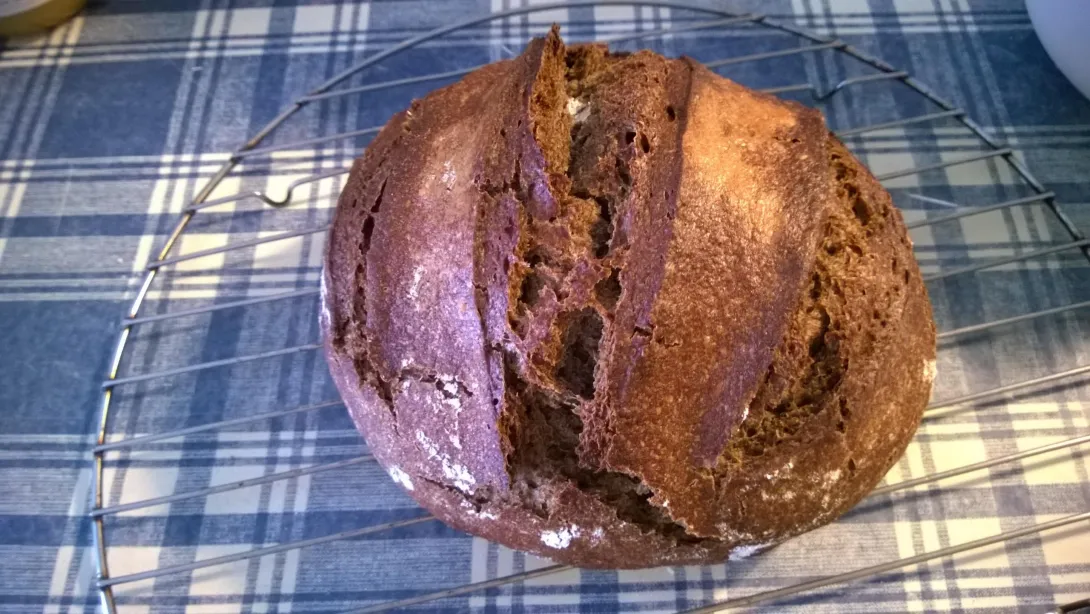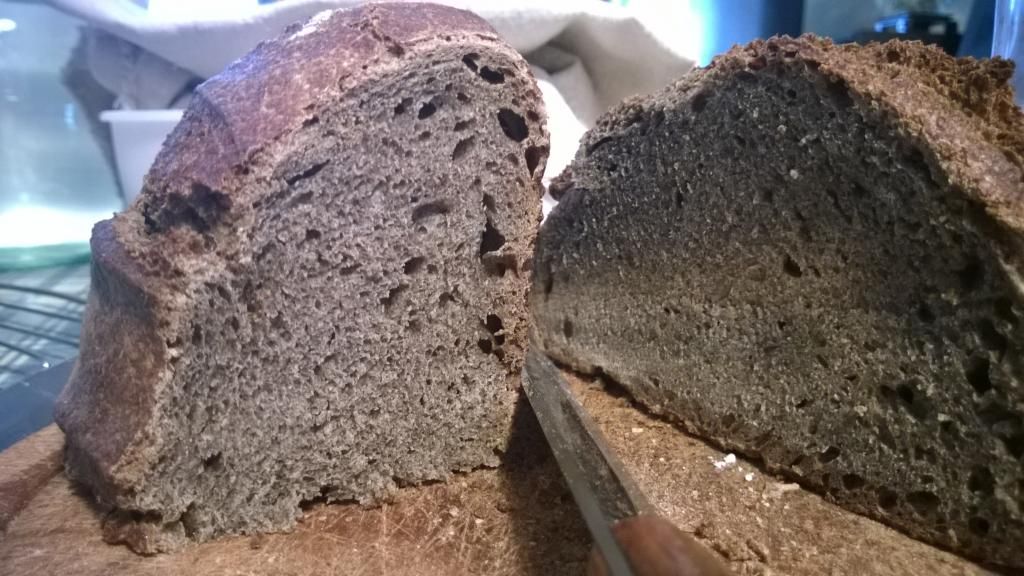
Hi all, I just made my first ever sourdough bread using a rye starter converted to white flour. It took a while to convert, but is now very active and happy.
I just made a 20% buckwheat boule, the rest being French T65 flour. Total hydration was 60%. I used 200g of 100% hydration starter for a total of 400g flour
The bulk ferment went faster than expected, it doubled in under 2 hours at room temperature, I preshaped and let it proof another 40 minutes, then did the final shaping and rise in a bowl for 20 minutes. I think it may have been a bit too underproofed, but I don't know enough about sourdough to tell if that was the only problem.
The crumb is much tighter than my usual breads, though the method I used was the same except for my usual recipes using IDY and a poolish instead of the starter. Is this a characteristic of buckwheat? Normally I use rye or spelt, also 20%. Would underproofing cause tight crumb? Is it because of the sourdough?
Thanks!
Thanks for the extremely detailed and helpful reply!
I realise now I made a mistake when calculating the sourdough amount. I was thinking only of the flour component in the sourdough when I was changing my recipe, so instead of counting the 200g sourdough as 50%, I only counted the 100g of flour in it as 25% and omitted the water in that particular calculation. I'll remember that for next time.
I like the idea of varying the amount of starter and the hydration level in mini-loaves, I will give that a try when I have time for mixing 3 different doughs at the same time, and next time I'll definitely try a plain white sourdough to familiarise myself with my starter.
Yes, I understand that, I had just forgotten to include the weight of the water in the % of starter when I was calculating how much starter to use :)
is only 100 g of flour of the 400 g total or 25% of prefermented flour, not 50%. Not too bad but still a little high for AZ in teh heat. With 400 g of flout I would shoot for 70% - 72% hydration or starting at 288 g of water. With 100 g in the starter that leaves 188 g for the dough flour. I think I would use 150 g of starter though and add the 25 g each of flour and water to the dough amounts. Looks great for a first SD bread! Well done and
Happy baking. .
Thanks, but 70+% hydration is much too high for my T65 flour, especially given the humidity levels here. 60% is ideal for working with, though I can normally up it to 62-64%.
I agree that 25% pre-fermented flour is within reason. Too many people think in terms of percentage of starter rather than percentage of pre-fermented flour. Just remember to use the water in the starter when calculating total hydration.
The crumb could be from either underproofing, over handling, or the lower hydration (possibly because of the buckwheat). It could have to do with the starter but more likely the other things.